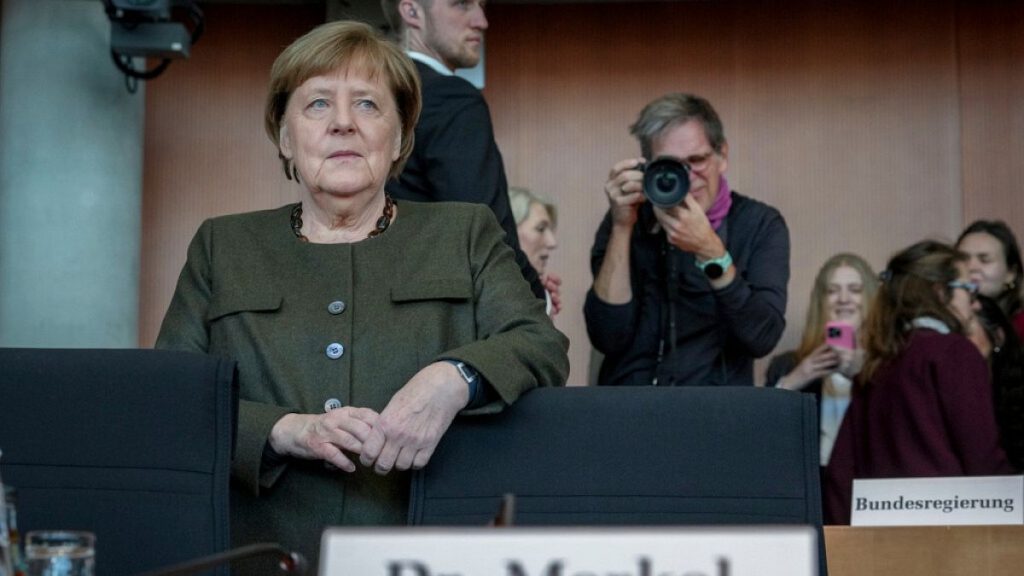Angela Merkel’s testimony before the German parliamentary inquiry committee provided a detailed account of the events leading up to and during the chaotic withdrawal of Western forces from Afghanistan in 2021. She characterized the withdrawal as a “terrible failure,” acknowledging the international community’s inability to achieve its stated goals in Afghanistan, ranging from establishing the rule of law to protecting women’s rights. Merkel recounted being briefed on the rapidly deteriorating situation upon her return from vacation on August 13, 2021, and subsequently authorizing the evacuation of German troops. She expressed surprise at the sudden flight of Afghan President Ashraf Ghani, which she contrasted with the steadfastness of Ukrainian President Volodymyr Zelenskyy during the Russian invasion. This unexpected turn of events, Merkel asserted, left the German government and its international partners unprepared for the rapid collapse of the Afghan government.
Merkel offered a candid assessment of the factors contributing to the failed mission in Afghanistan. She highlighted internal challenges within Afghan society, including nepotism, corruption, drug trafficking, and a lack of cultural understanding between Western forces and the Afghan population. Furthermore, she pointed to the underestimated influence of neighboring Pakistan and the complex geopolitical landscape as contributing factors that were not fully grasped before Germany’s initial military involvement. Although critical of the overall outcome, Merkel refrained from completely condemning the US-led intervention, maintaining that Germany’s initial support in the wake of the 9/11 attacks was justified given the perceived terrorist threat emanating from Afghanistan. She acknowledged the hope, albeit ultimately unrealized, of quashing this threat through military intervention.
The former chancellor’s testimony emphasized the sense of surprise and unpreparedness within the German government regarding the speed of the Taliban’s advance and the collapse of the Afghan government. Ghani’s abrupt departure, in Merkel’s view, significantly accelerated the crisis and left a vacuum in leadership that the international community struggled to address. While recognizing the failures of the mission, Merkel also attempted to contextualize Germany’s involvement within the broader framework of the post-9/11 global response to terrorism. Her acknowledgement of the overly ambitious goals and the lack of adequate understanding of the Afghan context underscores the complexity and ultimate futility of the two-decade long intervention.
The parliamentary inquiry, which concluded with Merkel’s testimony after hearing from 111 witnesses, sought to understand the German military’s specific role in the withdrawal. Merkel’s account provides a valuable perspective from the highest level of German leadership during that period. Her admission that the international community “took on too much” reflects a broader reassessment of the feasibility of nation-building efforts in Afghanistan and the need for greater realism in defining objectives and understanding the local context. The hurried evacuation of German forces, following the collapse of the Afghan government, became a symbol of the larger failure of the international intervention.
The withdrawal from Afghanistan has been subject to extensive criticism, particularly directed at the US government under President Joe Biden. Critics have argued that the withdrawal was poorly planned, lacked an effective civilian evacuation strategy, and ultimately empowered the Taliban to swiftly retake control of the country. The Trump administration’s prior agreement with the Taliban, which set a timeline for withdrawal and released numerous Taliban fighters, has also been cited as a contributing factor to the chaotic events of 2021. This agreement, according to Biden’s defenders, severely limited the options available to the incoming administration and created conditions conducive to the Taliban’s resurgence.
Merkel’s testimony, while focused on the German experience, provides insight into the broader international dynamics at play during the withdrawal. Her reflections on the flawed assumptions and underestimated challenges of the mission echo the wider debate surrounding the effectiveness and legacy of the intervention in Afghanistan. The German parliamentary inquiry serves as a national effort to understand the events of 2021 and draw lessons for future foreign policy engagements. Merkel’s appearance as the final witness underscores the significance of the inquiry and the importance of learning from the failures in Afghanistan.

